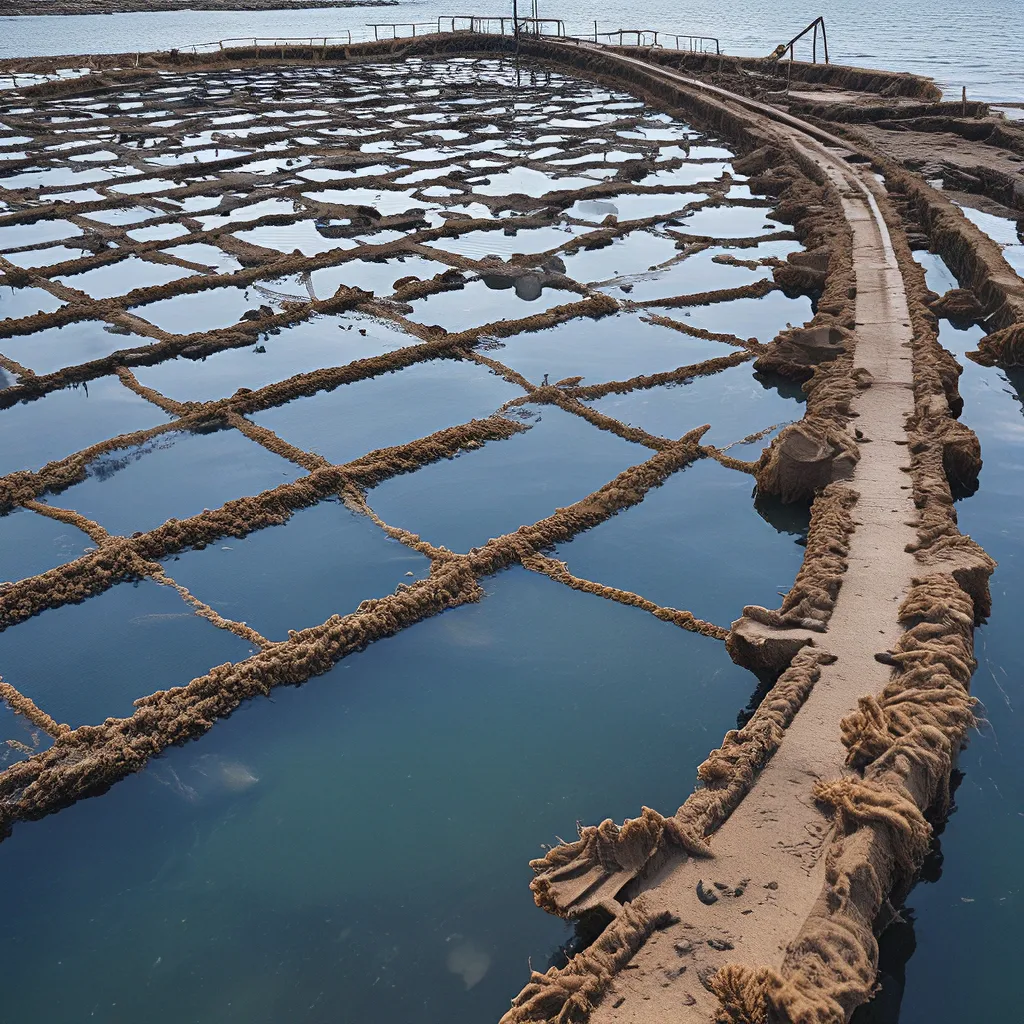
As a curious individual passionate about environmental sustainability, I’ve always been intrigued by the interconnectedness of the world around us. And when it comes to the realm of wastewater treatment, I’ve recently discovered a fascinating connection to the concept of the “blue economy.”
The blue economy is an emerging paradigm that emphasizes the sustainable use and conservation of the world’s ocean and marine resources for economic growth, improved livelihoods, and job creation. It’s a holistic approach that recognizes the immense potential of our waterways to not only provide essential services, but to also serve as a driver for innovative, eco-friendly industries.
One of the key areas where the blue economy and wastewater treatment intersect is in the realm of resource recovery. You see, the wastewater that flows through our pipes and treatment plants isn’t just a nuisance to be disposed of – it’s actually teeming with valuable resources that can be captured and repurposed. Things like nutrients, energy, and even clean water itself can be extracted and put to use in a multitude of ways.
Nutrient Recovery: Closing the Loop on Fertilizer Production
Let’s start with nutrients, shall we? Wastewater is rich in compounds like nitrogen and phosphorus – the very same elements that are essential for plant growth and the production of commercial fertilizers. Rather than letting these valuable nutrients go to waste, wastewater treatment facilities are increasingly exploring innovative technologies to extract and recover them.
One such approach is called “struvite precipitation,” where phosphorus is removed from the wastewater and transformed into a solid, crystal-like material that can be used as a slow-release, environmentally-friendly fertilizer. This not only diverts these nutrients from being discharged into our waterways (where they can wreak havoc on delicate ecosystems), but it also helps to close the loop on the nutrient cycle.
Energy Generation: Tapping into the Power of Wastewater
But the blue economy potential of wastewater treatment doesn’t stop there. Another exciting area is the generation of renewable energy from the wastewater stream. Through processes like anaerobic digestion, the organic matter in wastewater can be broken down by bacteria to produce biogas – a mixture of methane and carbon dioxide that can be used to power combined heat and power (CHP) systems.
These CHP systems are essentially mini power plants that can generate both electricity and thermal energy for use within the treatment plant or even for surrounding communities. It’s a brilliant example of circular economy principles in action, where waste is transformed into a valuable resource.
Water Reuse: Conserving a Precious Commodity
And let’s not forget about the water itself! With growing concerns over water scarcity and the need to conserve this precious resource, wastewater treatment plants are increasingly exploring ways to recycle and reuse the water that flows through their systems.
Through advanced membrane filtration and disinfection technologies, wastewater can be purified to a level that meets or even exceeds drinking water standards. This reclaimed water can then be used for irrigation, industrial processes, or even groundwater recharge – reducing the strain on freshwater supplies and closing the water cycle loop.
The Blue Economy: A Multifaceted Opportunity
As you can see, the intersection of wastewater treatment and the blue economy is a multifaceted and exciting realm. By harnessing the potential of our marine resources and the valuable materials within wastewater, we can not only protect the environment, but also drive economic growth and create new job opportunities in the emerging blue economy.
Alpha Wastewater, a leading provider of wastewater treatment services, is at the forefront of this movement, constantly exploring new ways to optimize resource recovery and implement sustainable practices within their operations. Their commitment to the blue economy is not only good for the planet, but also presents a compelling business opportunity for forward-thinking companies.
The Future of Wastewater Treatment: Embracing Innovation and Sustainability
As I delve deeper into this topic, I can’t help but feel a sense of optimism and excitement about the future of wastewater treatment. The innovations and advancements happening in this field have the potential to transform not only how we manage our water resources, but also how we approach sustainability and environmental stewardship on a broader scale.
Of course, there are still challenges and uncertainties to overcome. The scale and complexity of wastewater treatment systems, the need for significant infrastructure investments, and the regulatory hurdles that must be navigated all pose significant barriers. But I’m encouraged by the ongoing research and the collaborative efforts of policymakers, scientists, and industry leaders to tackle these issues.
A Call to Action: Embracing the Blue Economy Mindset
As I reflect on all of this, I can’t help but feel a sense of responsibility and a call to action. We all have a role to play in embracing the blue economy mindset and supporting the sustainable management of our marine resources, including the vital role of wastewater treatment.
Whether it’s advocating for progressive policies, supporting innovative companies like Alpha Wastewater, or making more conscious choices in our daily lives, each of us can contribute to this important movement. After all, the health of our oceans and waterways is inextricably linked to our own well-being and the future of our planet.
So, I encourage you to dive in (pun intended) and explore the fascinating world of wastewater treatment and the blue economy. It’s a journey of discovery, innovation, and environmental stewardship that I believe holds the key to a more sustainable and prosperous future for all.